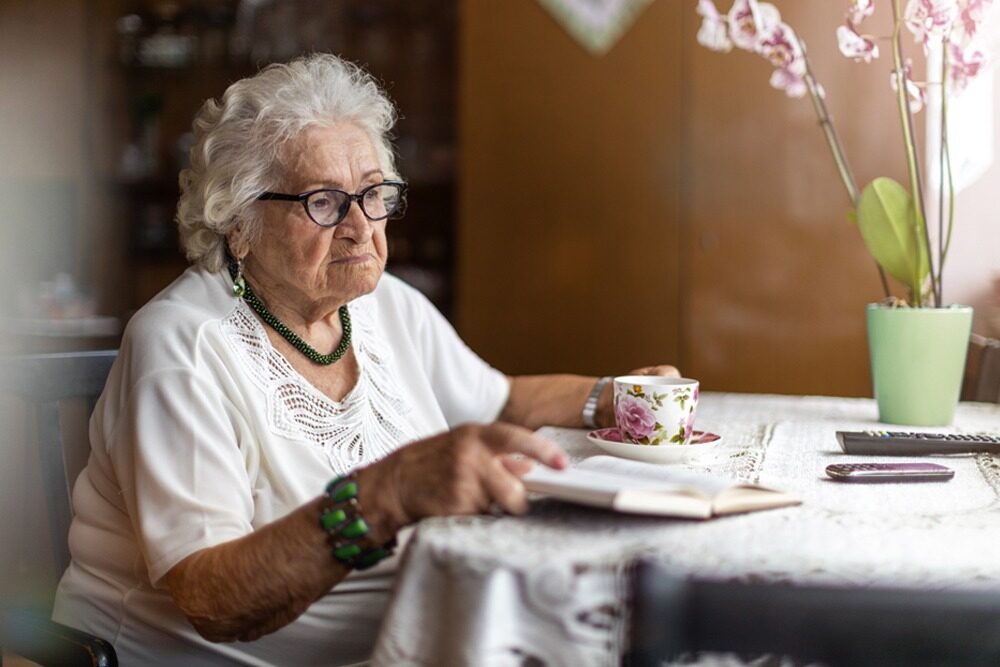
Hospice for Alzheimer’s and Dementia
Published
June 14, 2023Alzheimer’s disease is an age-related, non-reversible brain disorder that develops over a period of years. In the beginning stages, people experience memory loss and confusion which may be mistaken for the kinds of memory changes that are sometimes associated with normal aging. However, the symptoms of Alzheimer’s gradually lead to behavior and personality changes, a decline in cognitive abilities such as decision-making and language skills and problems recognizing family and friends. Alzheimer’s is the most common cause of dementia among people aged 65 and older.
Dementia is the loss of cognitive functioning and behavioral abilities where it interferes with a person’s daily life and activities. These functions include memory, language skills, visual perception, problem solving, self-management and the ability to focus and pay attention. There are some individuals with dementia that are unable to control their emotions and their personalities may change. This disease ranges in severity from the mildest stage, when it is just beginning to affect a person’s functioning, to the most severe stage, when the person must depend completely on others for basic activities of living.
Types of Dementia include:
- Alzheimer’s disease
Leads to behavior and personality changes, a decline in cognitive abilities such as decision-making and language skills, and problems recognizing family and friends. Alzheimer’s ultimately leads to a severe loss of mental function
- Frontotemporal disorder
The result of damage to neurons (nerve cells) in parts of the brain called the frontal and temporal lobes. As neurons die in the frontal and temporal regions, these lobes atrophy, or shrink. Gradually this damage causes difficulties in thinking and behaviors normally controlled by these parts of the brain.
- Lewy body dementia
A disease associated with abnormal deposits of a protein called alpha-synuclein in the brain. These deposits, called Lewy bodies, affect chemicals in the brain whose changes in turn can lead to problems with thinking, movement, behavior and mood.
Hospice Eligibility Requirements for Alzheimer’s Disease and Dementia
For a dementia patient to meet the hospice eligibility criteria, two physicians must certify that the patient has a life expectancy of six months or less if the disease continues in its typical progression. For patients with dementia, it may be time to consider hospice when the patient’s physical condition begins to decline.
In determining eligibility, the patient must have both 1 and 2:
- Stage 7C or beyond according to the Functional Assessment Scale (FAST)
- One or more of the following conditions in the past 12 months
- Aspiration pneumonia
- Pyelonephritis
- Septicemia
- Multiple pressure ulcers (stage 2-4)
- Recurrent fever
Other significant conditions that suggests a limited prognosis which includes the inability to maintain sufficient fluid and calorie intake in the past six months. (10% weight loss and/or albumin <2.5 gm/dl).
How Hospice Can Help Patients with Alzheimer’s and Dementia
The St. Croix Hospice care team is provided training and certification in dementia. Every field clinician will receive two full days of training which meets the Alzheimer’s Association’s Dementia Care Practice Recommendations.
This certification will not only benefit the hospice clinician, but the dementia patient, caregivers and the referral source by appropriately managing patient symptoms at home and decreasing emergency room visits and live discharges.
Education
The care team educates patients and families about the disease process, what to expect, how to manage symptoms and reduce anxiety and uncertainty.
Proactive Symptom Management
Proactive symptom management and timely interventions can reduce unnecessary hospitalizations.
Emotional Support
Hospice care supports both patients and families, helping them cope with the challenges and emotions associated with a terminal diagnosis.
Personal Care
Hospice aides can assist with daily activities like bathing, dressing and mobility, to manage personal hygiene and support with dignity.
How Hospice Can Help the Families and Loved Ones
The physical and emotional demands of caregiving can be exhausting. Caregivers may experience anger, guilt, frustration, discouragement, worry, grief or social isolation. Hospice helps prevent caregiver burnout by:
- Encouraging caregivers to ask friends or other family members for help when they need it
- Encourage caregivers to exercise regularly and eat a healthy diet
- Encourage caregivers to learn as much about the disease as they can and to ask questions
- Encourage caregivers to consider joining a support group
When to Call Hospice Care for Alzheimer’s Disease and Dementia
If you’re seeing a change in your loved ones behavior, they’re becoming withdrawn or apologetic, confused or you see an increase in pain, it may be time to call hospice.

